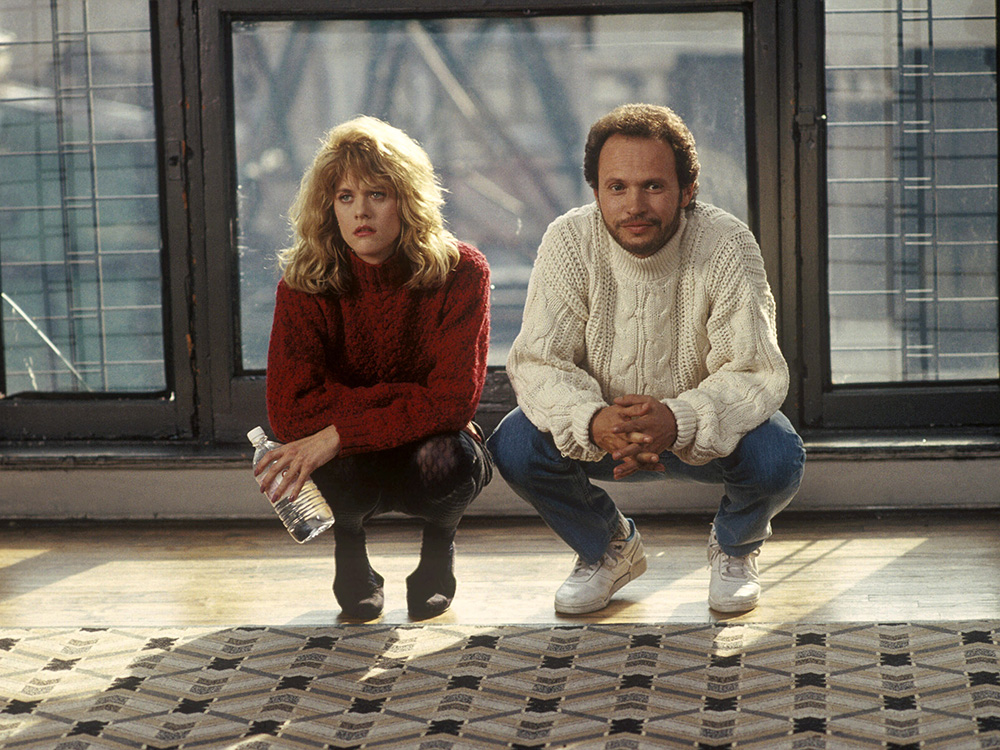How to have an awkward money conversation with your partner
Yes, you do have to talk about it.

Yes, you do have to talk about it.
In a world where discussing anal bleaching over cocktails is par for the course, there's only really one topic left that we don't like talking about: Money. Discussing money is awkward, embarrassing and can be pretty tacky. But the truth is, you can't go through your whole adult life without ever discussing the M-word with your partner, and if you're going to do it, you might as well do it right. So, whether you're dating, moving in together, buying a house or getting married, we've got all the awkward money chats you'll ever have with a partner, covered.
Carl Reader, from D&T chartered accountants explains that money problems within a relationship are often caused by different expectations. 'Often, disputes over money between individuals are due to what we call an expectation gap.' says Carl. 'Simply put, neither side knows what the other side is expecting. In the business world these are avoided by having clear contracts. Whilst you wouldn’t necessarily have a solicitor prepare an agreement for a small family loan; it is important that you both set out the terms for any major loans or home buying decisions.

Dating Who pays for what when you're dating is probably the first awkward conversation you're going to have. If you're both at similar levels in your career and earning around the same, then it's quite straight forward - it's more complicated if there's a wealth imbalance. In the case that one of you had a whole lot more cash to splash, it's not fair to assume you'll split the bill in fancy restaurants or that you'll pick up the tab on a taxi because your new boo doesn't like taking the tube. Being honest about feeling a bit strapped and not wanting to go for a lavish cocktail and spa day is a good start on all of the honest conversations you'll have to have if you keep seeing each other long term. In this case the old etiquette rule about the person who issues the invitation picking up the bill can be a good one. If the person you're dating wants to go for a 15 course tasting menu with paired wines, then that's great. But it doesn't mean you can't take them to Nandos when it's your turn to pick up the bill.

Moving in together When you first move in together it's time to have an open and honest chat about how much you both earn, any major outgoings and how you want to pay for things. That conversation isn't a fun one and you'll probably want a big glass of wine first, but if you're ready to let your other half see you with food poisoning, PMS or a the flu, you should probably be ready to disclose your salary and your debt levels, however vulnerable it might make you feel.
The two typical options when you're co-habiting are either to split everything down the middle, again, easy if you're earning about the same, or to pay proportionally. If one of you out earns the other, than paying a relative proportion of your respective salaries can offset that. It means that you're both giving up the same amount of your money to rent, so it can end up feeling a lot fairer.

Buying a house When you buy a house, you're hoping that the biggest row you have will be about someone leaving wet towels on the bathroom floor. But however unromantic it feels, you have to go in with your eyes open. Moving in together is a huge a commitment, whether you're buying or renting, but buying makes it even more complicated.
Marie Claire Newsletter
Celebrity news, beauty, fashion advice, and fascinating features, delivered straight to your inbox!
It's important that by the time you start trying to get a mortgage, you've made full disclosure to each other about your financial situation, because getting a mortgage is a pretty invasive procedure, and you're not going to be able to hide any debt. And as we all know, it's better to tell your partner something than let them find out.
Carl Reader, of D&T accountants suggests that earlier is better than later. 'Whilst you might not feel inclined to spend any more on legal advice than you need to, it could be worth speaking to your solicitors if you are considering co-habiting with someone. I would suggest that this is vital if you are contributing different amounts to the purchase, or if one of you is taking the burden of the mortgage. This will help you create a reasonable expectation of what will happen in the event of a sale.

Getting Married Perhaps the biggest arguments over money come from divorce and separation. Whilst there is no legal obligation to have a pre-nup, being prepared and having a broad agreement about how money would be divided in the case of a split is a prudent choice for both sides, and it may help reduce lawyers fees. Again, this is commonplace in the business world, and business owners would have “shareholders agreements” or “partnership agreements” which sets out what happens and how it happens should they drift apart. A pre-nup is the domestic equivalent when it comes to personal finances: and much like the business agreements, we all hope that they are never used once prepared!
No-one wants to have a chat about breaking up when you're enjoying a relationship milestone. But the sad truth is that sometimes it doesn't work out, and it's infinitely easier to have the conversation about how that will work, when you're still very much in love.
As Carl says, 'It might sound like something that can be put off until tomorrow, but it is vital to get a will prepared, particularly if you are buying a property or making an investment. There are kits available to help you do this yourself; however my strongest advice is to get a professional to do the job. I’ve had to work with individuals who didn’t do this, and the lack of clarity in some wills can cause major family headaches for the survivors.'
Talking through the realities of your financial situation is an important part of being a couple in the first place. If you can have a calm and mature discussion about money, debt and how you would handle the finances if you broke up, then that's a powerful indicator about your relationship.
The leading destination for fashion, beauty, shopping and finger-on-the-pulse views on the latest issues. Marie Claire's travel content helps you delight in discovering new destinations around the globe, offering a unique – and sometimes unchartered – travel experience. From new hotel openings to the destinations tipped to take over our travel calendars, this iconic name has it covered.